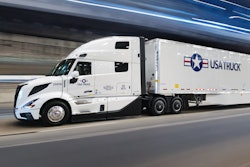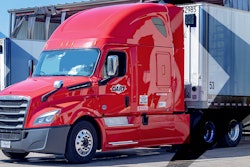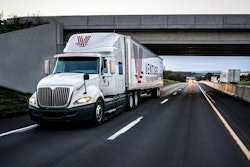The American Transportation Research Institute has announced that it has been commissioned by the U.S. Customs and Border Protection Agency to conduct a border efficiency assessment, specifically focusing on the agency’s Truck E-Manifest initiative and its use by motor carriers.
ATRI’s work for CBP will include documenting industry- and regulatory-based border crossing inefficiencies and quantifying appropriate Truck E-Manifest efficiency solutions. ATRI will provide the agency and the industry with an analysis of the costs and benefits associated with use of the Truck E-Manifest and offer recommendations for system refinement.
“With trade at the border experiencing record growth, it is imperative that government and industry work together to identify how efficiencies at border crossings can be achieved,” says Rebecca Brewster, ATRI president and chief operating officer. “This research, along with other efforts such as the Federal Highway Administration/ATRI Freight Performance Measures initiative, will provide the most comprehensive picture of what system improvements are available and where they should be brought to bear.”
Developed as a result of the Trade Act of 2002, the Truck E-Manifest is part of the agency’s Automated Commercial Environment (ACE) program. It enables motor carriers and manufacturers to electronically submit manifests to CBP prior to arrival at U.S. land border crossings to reduce processing time and allow for online tracking of shipments. Use of the Truck E-Manifest provides CBP officers with consolidated information to help expedite legitimate trade while keeping America’s borders secure.
“It is challenging for any trucking company these days to balance the strong growth in freight movement with the continuously evolving needs for freight and border security,” says Herb Schmidt, president and chief executive officer of Contract Freighters Inc. “This joint research initiative between ATRI and CBP will provide us with important insights on the role that technology can play in moving our international goods more efficiently.”







